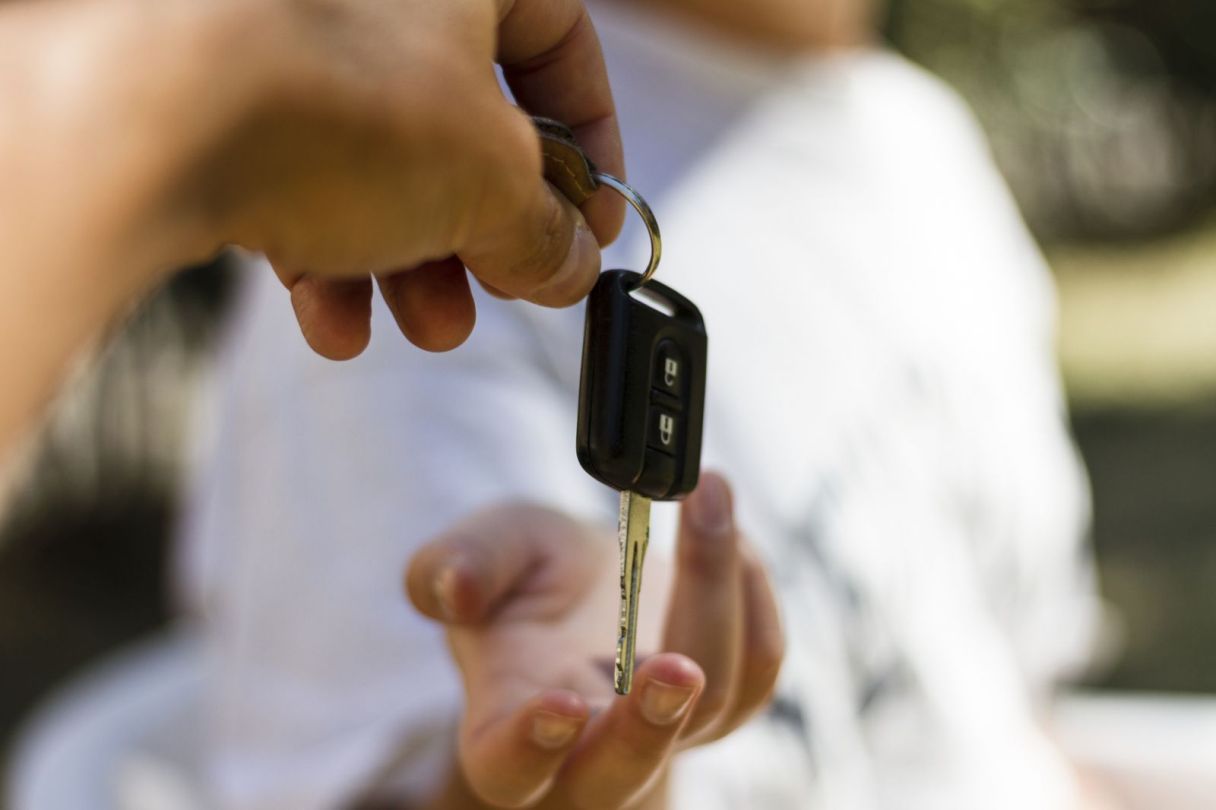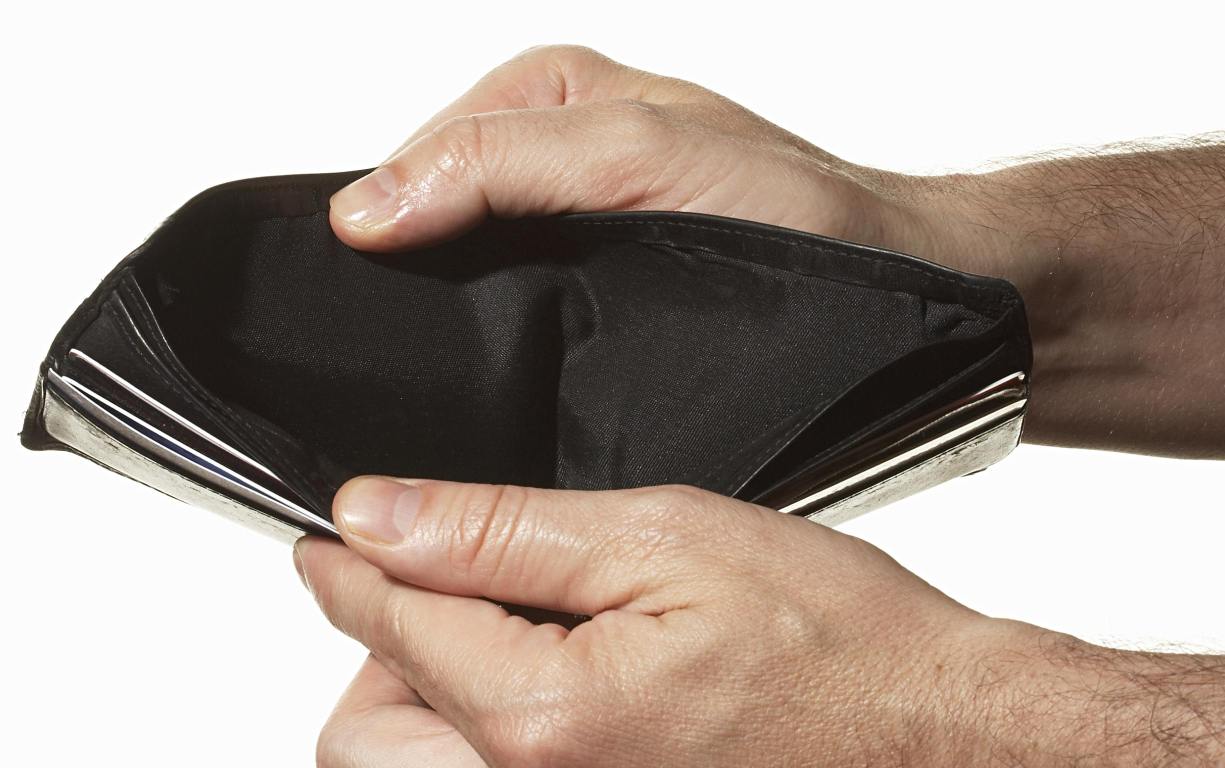When you get behind on your car payments, it might feel like you have no options ahead of you. However, if you’re anxious about having your car forcibly repossessed by the bank, there is a way to take control of the situation.

A voluntary repossession allows you to hand your car back to your lender on your own timeline. You can do this instead of waiting for it to be towed from your home or workplace.
In a situation where repossession is unavoidable, a voluntary repossession does come with a few advantages. However, a repossession of any kind will still have dramatic effects on your credit history, and consequently, your future ability to borrow.
Learn more about what a voluntary repossession is and the effect it has on your credit and finances. We’ve even thrown in a few tips to avoid getting in this situation in the first place.
What is a voluntary repossession?
A voluntary car repossession occurs when a borrower, unable to keep up with the monthly payments, chooses to willingly surrender it to the lender rather than waiting for the lender to forcibly repossess it. This action is taken in hopes of mitigating some of the adverse financial and credit consequences that accompany an involuntary repossession, although it still has negative implications for the borrower’s credit report and score.
How does voluntary repossession work?
Your lender can repossess your car at any time after you default on the auto loan in most states. However, a voluntary surrender is initiated by you, the borrower. You arrange a drop-off time and location that works for both you and the lender.
The repossessed car is then sold at an auction and the money raised there goes towards whatever you owe. The exact intricacies and legal processes of a vehicle repossession, both voluntary and involuntary, vary from state to state.
You can find out the specifics of your state’s laws regarding auto repossessions by contacting your attorney general’s office.
Voluntary Repossession vs. Involuntary Repossession
Both voluntary and involuntary repossessions result in the loss of your car, but choosing to voluntarily surrender your vehicle offers distinct advantages. This proactive approach grants you control, preventing unexpected interactions with the repo man. Moreover, you circumvent the challenges of retrieving personal belongings post-towing, which can be tricky and time-sensitive depending on your loan agreement.
Financial Benefits of a Voluntary Repossession
Voluntarily returning your vehicle could lead to significant savings. As the borrower, you could be liable for fees the lender incurs during the repossession, encompassing charges for towing and storage leading up to auction.
While these expenses may seem minor in the context of losing your car, they can compound your financial burdens. If you foresee repossession on the horizon, taking the voluntary route is often the more prudent financial and emotional decision.
How Voluntary Repossession Affects Your Credit Score
A repossession of any kind is serious business when it comes to your credit score. However, voluntary surrender of your vehicle won’t impact your credit quite as much as an involuntary repossession.
The negative item on your credit report is also listed differently for a voluntary repossession versus an involuntary repossession. Future lenders can see that you willingly gave up your car to repay your debt. So, while it’s still not ideal, it’s a slight advantage compared to your other option.
How long does a voluntary repossession stay on your credit report?
A voluntary repossession will stay on your credit report for up to seven years. However, you’ll notice your credit scores beginning to rebound after a few years.
Ready to Clean Up Your Credit Report?
Learn how credit repair professionals can assist you in disputing inaccuracies on your credit report.

To expedite the process, ask your lender to stop reporting your missed payments since you’ve saved them time and money by voluntarily surrendering your vehicle. This will at least prevent your credit score from becoming further damaged by late payment entries.
Getting a Car Loan in the Future
With a repossession listed on your credit reports, it will be challenging to get credit in the future. Car loans will be restricted to lenders with extremely lax guidelines. This means you won’t be able to borrow as much, and you’ll have to pay exorbitant interest rates.
If you can’t get approved for a car loan or can’t afford your car payments, you might have to save up and pay cash for a cheap car. It might not sound ideal, but getting yourself into a high-interest car loan with expensive car payments could be setting yourself up for difficulty once again.
Driving an old car or taking public transportation might be better options than entering a cycle of over-burdensome debt. Hopefully, you can save up some money without having a monthly car payment and benefit from some peace of mind.
The Financial Aftermath of Voluntary Repossession
After a voluntary repossession, there’s a substantial chance you’ll still owe money, known as a deficiency. This arises when the car’s auction sale doesn’t cover the remaining balance and added repossession fees.
The deficiency remains on your credit history alongside the repossession notation and you’re responsible for its payment. Often, unpaid amounts get sold to a collection agency, resulting in persistent collection efforts.
The collection account will also be listed on your report, further harming your credit. If possible, negotiate a payment plan directly with your lender to prevent this.
The Risk of Legal Action
Should you fail to settle the deficiency, lenders can legally sue in many jurisdictions. A resulting judgment not only harms your credit further but can also lead to wage garnishment. Prioritize avoiding this scenario: attend court hearings, present your side, and consider legal counsel. An adept attorney might prove invaluable, especially if the lender erred in any legal procedures during your car’s sale.
Bankruptcy as a Strategy to Retain Your Car
Filing for bankruptcy might serve as a means to deter car repossession. However, it’s vital to assess your qualification and grasp bankruptcy’s long-term credit implications.
Chapter 7 Bankruptcy Options
Under Chapter 7 bankruptcy, provided you satisfy certain income caps, there are avenues to address car loans.
Redemption
This allows for settling the current market value of the car in a one-off payment. While it involves a lump sum payment, the upside is that any amount exceeding the car’s present value gets written off.
Reaffirmation
An alternative within Chapter 7 is reaffirmation. It establishes a renewed agreement between the borrower and lender. Though you persist with monthly car loan payments, the responsibility is fully yours, meaning the debt remains non-dischargeable. For its approval, the court must be convinced of your capability to manage the stipulated payments. If not, repossession remains a risk.
The Chapter 13 Approach
Distinct from Chapter 7, Chapter 13 enrolls you in a 3-5 year repayment scheme with creditors. The car loan can potentially be incorporated into this plan. Your singular monthly commitment gets distributed among the creditors involved, typically at a reduced amount than initially owed. By the plan’s end, debts are considered settled.
How can you prevent repossession before it happens?
Prevention is almost always a better alternative to mitigating damage to your credit scores and financials due to a voluntary repossession. If bankruptcy isn’t right for you, you can still take other actions before your auto loan gets too close to default.
Talk to your lender about your issues, especially if you’ve fallen behind on your payments due to an emergency. A repossession is both timely and costly for a lender, and they’d much rather make money off your interest payments each month. If you have good credit, you might be able to refinance your car loan.
Renegotiating Terms
You could potentially qualify for a lower interest rate or renegotiate the length of your auto loan repayment period. Of course, by extending your payment schedule, you will pay more interest over time. However, at least you’d be able to afford your car payments and avoid the eventual costs of bad credit.
Selling Your Car
Another strategy to consider is selling your car. Depending on your loan amount and the current market value, you may be able to repay your full loan amount. If that’s the case, you would have to pay the difference to your lender before you could transfer the title to someone else.
If the deficiency is higher than your money in savings, consider finding a part-time job or side hustle to bridge the gap.
Consider selling some belongings on eBay or Craigslist, driving for Uber, or volunteering for extra hours at work. While this isn’t an easy solution, the temporary hardship could help save your car from getting repossessed.
Is it possible to get a voluntary repossession removed from your credit report early?
If you have a voluntary repossession on your credit report, it is possible to have it removed before the seven-year time limit.
Credit bureaus are required to report information that is accurate and verifiable. Therefore, if you check your credit reports and find any inaccuracies or inconsistencies with the way your repossession is listed, you can dispute it.
Working with a Credit Repair Company
In many cases, the dispute process is more effective when working with a professional credit repair firm.
The best credit repair companies, like Credit Saint, have years of experience in getting inaccurate negative items removed for their clients. You can certainly tackle the dispute process on your own. However, it doesn’t hurt to get a free consultation to see how a professional could help you.
While going through a voluntary repossession is better than an involuntary repossession, it still has a significant impact on your credit. Weigh all of your options carefully and try to address any financial issues as soon as possible. You often have more alternatives available earlier in the process.
Ready to Clean Up Your Credit Report?
Learn how credit repair professionals can assist you in disputing inaccuracies on your credit report.





